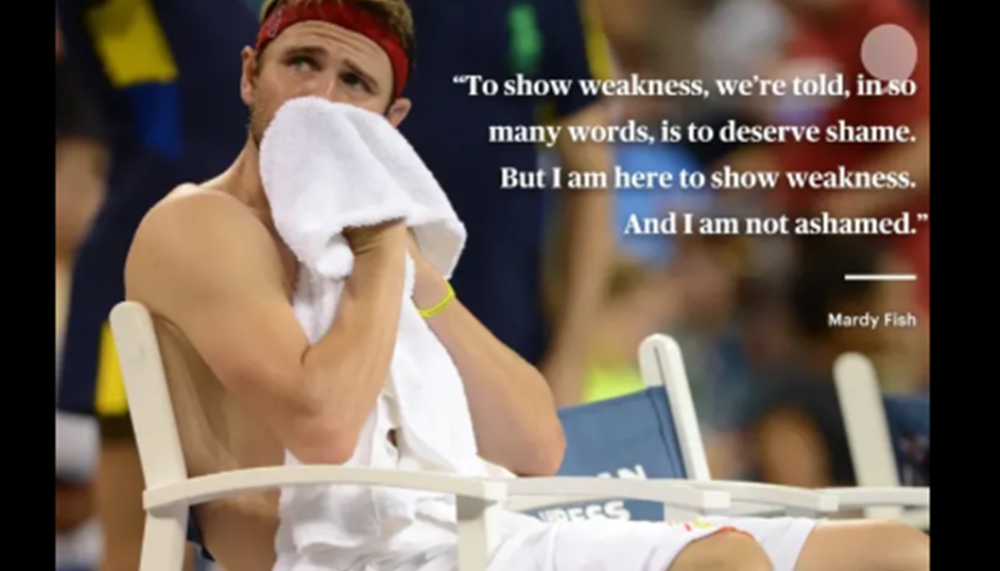



Mardy Fish is a former American professional tennis player who achieved a career-high singles ranking of World No. 7. A hard-court specialist, Fish won six ATP Tour titles and reached the finals of four Masters 1000 events. He represented the United States in the Davis Cup and won a silver medal in singles at the 2004 Athens Olympics. Fish established himself as a prominent figure in American tennis during the early 2000. He is also featured in the Netflix documentary series Untold: Breaking Point where he opens up about his career and talks about his most important match, the match against Roger Federer, the greatest tennis player of all time

What is particularly interesting about this match is that Fish neither won nor lost the match. In fact he never played the match. In the documentary he mentions how his anxiety and fear got the better of him; so much that he had to be rushed to the hospital. Fish recalls a sort of “... flooding of thoughts…” on his way to play his match that he could not understand and was not able to manage, leading to him eventually withdrawing from the match
The documentary started with footage that Fish was exposed to, made to imbibe into his nature, a clip on Mental Toughness, that emphasised that mental toughness was synonymous with slogans of “... never whining,... never complaining… show no emotion…”. As taught, Fish followed. Could this have had an impact on his health

The pursuit of athletic excellence demands a delicate balance between physical prowess and mental fortitude. While physical training is essential, the mental landscape plays a crucial role in determining an athlete's success. One significant factor impacting this mental landscape is the tendency to repress emotions, often seen as a necessary evil in the competitive arena. However, research and the insights of Kristen Ulmer, a thought expert on Fear for Sports People (as cited in authenticparenting.com), reveal the detrimental effects of emotion repression on athletic performance and mental health
Athletes often feel pressure to project an image of unwavering focus and composure. This can lead to the suppression of emotions, both positive and negative. The rationale behind this approach is often twofold
While repressing emotions may seem like a strategic move on the surface, it can have a multitude of negative consequences
Fortunately, there's a better way. Instead of repressing emotions, athletes can benefit from developing emotional intelligence, the ability to understand, use, and manage their emotions in positive ways. Here's how:
Mardy Fish's candid discussion about his mental health struggles marked a turning point for athletes and the sports world. Today, prioritizing mental well-being is no longer an afterthought; it's recognized as fundamental for peak performance. The focus has shifted: mental training is now integrated alongside physical training, emphasizing its crucial role in an athlete's overall development and success
Coaching, C. P. (2020, June 17). How to Handle Athlete Fear in Different Sports | Q&A with Coach Rebecca. Complete Performance Coaching https://completeperformancecoaching.com/2018/04/27/how-to-handle-athlete-fear-in-different-sports/ Grossman, C. (2017, July 5). Kristen Ulmer book: How athletes cope with fear - Sports Illustrated. SI. https://www.si.com/edge/2017/07/05/kristen-ulmer-book-art-of-fear Villines, Z. (2023, October 4). Repressed emotions: Signs and impact https://www.medicalnewstoday.com/articles/repressed-emotions#vs-suppressed